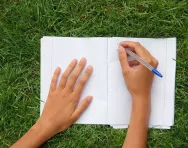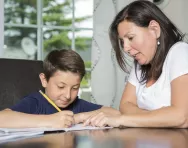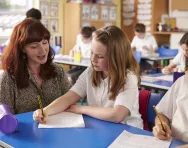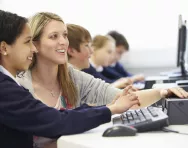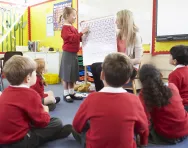Important update from TheSchoolRun
For the past 13 years, TheSchoolRun has been run by a small team of mums working from home, dedicated to providing quality educational resources to primary school parents. Unfortunately, rising supplier costs and falling revenue have made it impossible for us to continue operating, and we’ve had to make the difficult decision to close. The good news: We’ve arranged for another educational provider to take over many of our resources. These will be hosted on a new portal, where the content will be updated and expanded to support your child’s learning.
What this means for subscribers:
- Your subscription is still active, and for now, you can keep using the website as normal — just log in with your usual details to access all our articles and resources*.
- In a few months, all resources will move to the new portal. You’ll continue to have access there until your subscription ends. We’ll send you full details nearer the time.
- As a thank you for your support, we’ll also be sending you 16 primary school eBooks (worth £108.84) to download and keep.
A few changes to be aware of:
- The Learning Journey weekly email has ended, but your child’s plan will still be updated on your dashboard each Monday. Just log in to see the recommended worksheets.
- The 11+ weekly emails have now ended. We sent you all the remaining emails in the series at the end of March — please check your inbox (and spam folder) if you haven’t seen them. You can also follow the full programme here: 11+ Learning Journey.
If you have any questions, please contact us at [email protected]. Thank you for being part of our journey it’s been a privilege to support your family’s learning.
*If you need to reset your password, it will still work as usual. Please check your spam folder if the reset email doesn’t appear in your inbox.
Helping your child get back into a school mindset
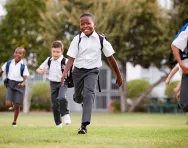
Being back at school after a period of time away will involve many challenges for primary school pupils, and it’s only natural that they’ll need a bit of practice to get back into the swing of the classroom.
Here, we take a look at some of the teething problems children may face and how to help them settle back into a learning mindset.
Back to school: pressure to ‘catch up’
Children can worry that they’ve fallen behind after a period of time away from the classroom. Teachers, however, are keen to avoid this ‘catch up’ rhetoric and the pressure it puts on pupils. They’re more likely to use phrases like ‘reminding’ and ‘jogging our memory.’
‘Teachers will be quick to identify children who need extra support,’ says Charlotte Badenoch, a primary school teacher and co-founder of tutoring service Bright Light Education. ‘If you think your child needs help to catch up, speak to their teacher at parents’ evening [likely to be remote for the foreseeable future] or email them to ask how they’ll be offering guidance and support.’
Make sure you keep language neutral at home, too, and go easy on your child while they’re bringing their skills up to date. You might want to give them some extra work around topics they’re finding tricky, but keep this low key and don’t force your child to do additional work if they’re reluctant.
Schools also recognise the need to look after children’s mental health, which has suffered as a result of the pandemic, and will focus as much on wellbeing as on catching up with missed work.
Back to school: relearning classroom rules
After the relative freedom of home, children may find it hard to remember what behaviour is expected of them in the classroom.
Sitting at their desk without getting up and wandering around, giving their full attention to the teacher, and following a timetable are just some of the difficulties they may face as they adjust to school life.
‘I’m sure my son will dislike having to wear school uniform again, and I worry about whether he’ll be able to concentrate for an extended period without asking for a snack!’ says Charlotte. ‘However, children are incredibly resilient and are able to adapt far better than adults.
‘There will be a period of adjustment for them, and no doubt they’ll come home utterly exhausted for the first week or so, but you’ll be amazed by how quickly they slot back into the school routine.’
You can help by reintroducing a school day routine at home: a getting-up time that means you’re not rushed, regular mealtimes, a set time for homework and a sensible bedtime will reset the boundaries, and you’ll probably find that once your child has settled back into the rhythm of term-time, they’ll be glad of the routine.
Back to school: restarting reading schemes
Being away from school means that children’s progress through their reading scheme is put on hold, and even if you’ve been reading lots at home, they may struggle to pick up where they left off.
‘Getting back into a reading scheme is a bit like exercising after an injury: you don’t go straight back to the intensity you were at before the injury,’ explains Leon Hady, headteacher and founder of learning support service Guide Education. ‘You have a few sessions at a lower intensity to rebuild confidence and strength.’
For this reason, teachers will slowly support pupils as they get back into following a reading scheme, rather than expecting them to have progressed, or even stayed in the same place.
‘It’s likely that teachers will move children back a few levels and call it a warm-up or a reminder,’ Leon says. ‘This will ease them back in.’
If your child is disappointed at having gone ‘backwards,’ make sure you tell them that this is a reminder of how their reading scheme works, and not a sign that they’ve fallen behind. If you think that the books they’re bringing home are too easy or too hard, use your child’s reading diary to let their teacher know.
Back to school: speaking in class
After time away from the classroom, your child may be anxious about having to participate in class when their peers and teacher are watching. Finding the confidence to raise their hand in class, answer questions, share their views and ask for help may take a bit of getting used to.
‘It’s natural for them to have anxious feelings about face-to-face learning, and the thought of putting their hand up and speaking in class may fill them with dread,’ says Charlotte. ‘However, teachers will be ready for this: they understand what a change it is from home learning, and will go easy on them.’
Teachers will also be creative in rebuilding children’s confidence with speaking out and find ways to encourage them without relying on them to raise their hand.
‘Sometimes, teachers ask a student to choose who answers a question, so they can ask their friends and help each other,’ says Leon. Teachers may also choose at random, for example by pulling named lolly sticks out of a jar so they don’t end up calling on the same few confident children all the time.
At home, you can help your child find their confidence with speaking out by asking them what they’ve been learning at school, getting them to explain their homework to you, and even just having conversations around the dinner table where you all share what you’ve done that day.
Back to school: relearning forgotten methodology
It's likely that some of your child’s core skills – such as phonics and maths strategies – will become rusty when they are away from school for a prolonged period like the summer holidays.
In the first few weeks of school, teachers will be recapping concepts that have already been introduced, and assessing where children are. ‘They may stream pupils in maths and English to account for their differing needs,’ Charlotte says.
They’ll also be looking out for areas where children have been taught different methodology by their parents, for example during lockdown learning. ‘Parents go with the path of their understanding, rather than sticking to curriculum methods that may be less familiar,’ says Leon.
Don’t feel guilty if it turns out you’ve taught your child to use different methodology from what they use in school.
‘It won’t take long for teachers to show them the up-to-date methodology, but it’s important to keep in contact with your child’s teacher so you’re both on the same page,’ Charlotte explains.
For example, if you’re helping with homework and your child is using a technique that you’re not familiar with, you might ask the teacher to print out some worksheets that explain how to do it or look through resources like TheSchool's free maths glossary for parents to find out more about it. You can also cement your child’s understanding by getting them to talk you through the methods they’re using, even if you don’t understand them yourself.
Back to school: handwriting regression
Online learning in 2020 and 2021 has meant that many children are out of practice with handwriting, which may well show when they start to put pencil to paper again at school.
‘It’s important to remember that children haven’t forgotten how to write, or regressed – they just haven’t used that knowledge for some time,’ says Leon.
Once your child is back at school and the amount of writing they do increases, you’re likely to see their handwriting improve again. Practice makes perfect, so you could also think about giving them some handwriting worksheets to use at home, or getting them to practise their writing in a purposeful way – for example, writing a shopping list or drawing and captioning a comic strip.
Back to school: independent work
At home, your child has a ready source of help and advice: you. At school, however, the focus is on solving problems independently: something that teachers will be helping to reinforce. ‘Teachers will be on the lookout for children who are finding it difficult to work by themselves, and will provide them with strategies to gain independence over time,’ Charlotte says.
You can support this at home by encouraging your child to think of ways to solve problems without being handed the answer on a plate. Ask them what their teacher would suggest, help them think of different strategies and choose the best, or give them useful tools, like counters or Lego bricks to help with counting, adding and subtracting.
‘You can also direct them to online resources, such as Oak National Academy and the many teachers on YouTube,’ adds Leon.
Back to school: making mistakes
Children naturally want to get things right, so making mistakes in their work can be hard to bear. ‘Mistakes are part and parcel of learning,’ says Leon. ‘Teachers will help by showing students why the mistake was made – they’ll reassure children that mistakes are common in that area, and that their role as a teacher is to help them correct it.’
Becoming disproportionately upset about making mistakes may also be a sign that your child is struggling mentally with the return to school, so tread lightly, be patient and try to make some time just for the two of you.
‘Don’t worry if they get upset when they make mistakes, but give positive encouragement and praise,’ Charlotte suggests. ‘Returning to school may open up more emotions, so it’s vital that we remain calm and supportive to help our children feel safe in their changing environments.’
